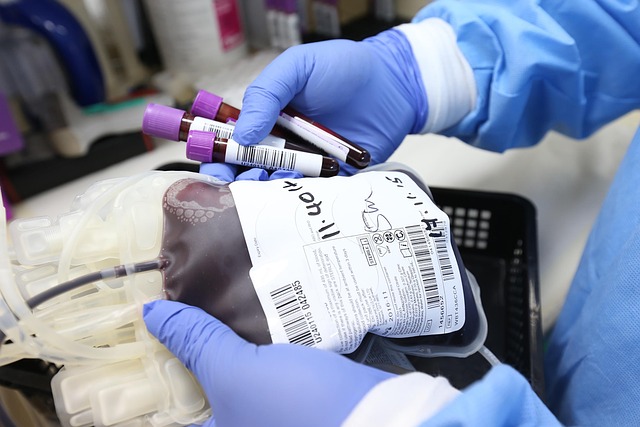Medical Assistant Training Programs Available Throughout Switzerland
Switzerland's healthcare system consistently ranks among the world's best, creating a steady demand for qualified medical support professionals. Medical assistants play a crucial role in this system, working alongside doctors and nurses to ensure efficient, high-quality patient care. For those interested in this rewarding healthcare career path, Switzerland offers numerous comprehensive training programs designed to provide the necessary skills and knowledge required in modern medical practices.

Explore Medical Assistant Training Opportunities in Switzerland
Medical assistant training in Switzerland follows a structured educational path that combines theoretical knowledge with practical skills development. The standard program typically spans three years and operates under the dual education system, where students divide their time between classroom learning and on-the-job training. This approach ensures graduates are well-prepared for the realities of medical practice environments.
The training curriculum covers essential medical knowledge, including anatomy, physiology, pharmaceutical basics, and laboratory procedures. Additionally, students learn administrative skills such as appointment scheduling, medical billing, and patient record management. This comprehensive approach prepares medical assistants to handle both clinical and administrative responsibilities in various healthcare settings across Switzerland.
Discover Comprehensive Medical Assistant Programs Across Cities
Switzerland’s federalist structure means that medical assistant training programs may vary slightly between cantons while still adhering to national standards. Major cities like Zurich, Geneva, Basel, and Bern offer robust training options through vocational schools (Berufsfachschulen/écoles professionnelles), hospitals, and medical centers.
In German-speaking regions, the profession is known as “Medizinische/r Praxisassistent/in (MPA),” while French-speaking areas use “Assistant/e médical/e.” Each canton provides programs in the predominant local language, with some institutions offering multilingual options to accommodate Switzerland’s linguistic diversity. This accessibility ensures that prospective medical assistants can find suitable training regardless of their location or preferred language of instruction.
Enhance Your Skillset with Professional Medical Assistant Training
The quality of Swiss medical assistant training is internationally recognized for its thoroughness and practical orientation. Beyond basic qualifications, many programs offer specialized modules focusing on areas such as pediatrics, geriatrics, surgery assistance, or administrative healthcare management. These specializations allow medical assistants to tailor their expertise to specific healthcare environments or patient populations.
Continuing education plays an important role in the Swiss healthcare system. After completing initial training, medical assistants can pursue additional certifications and advanced courses to expand their professional competencies. These might include specialized clinical skills, practice management, or patient counseling techniques. Such ongoing professional development not only enhances career prospects but also ensures that medical assistants keep pace with evolving healthcare practices and technologies.
Admission Requirements and Application Process
Prospective medical assistant students must typically have completed mandatory schooling (usually nine years) with good grades, particularly in science subjects and languages. Many programs require an apprenticeship contract with a doctor’s office or medical facility before enrollment. This ensures that theoretical learning can be immediately applied in a practical setting.
The application process generally involves submitting educational transcripts, attending an interview, and sometimes completing an aptitude test. Given the patient-facing nature of the role, personal qualities such as empathy, communication skills, and reliability are highly valued. Most programs begin in August or September, with application deadlines several months earlier, making advance planning essential for interested candidates.
Training Costs and Financial Support Options
Training costs for medical assistant programs in Switzerland vary depending on the canton, institution, and program structure. Students can expect different financial commitments based on these factors.
| Institution Type | Approximate Annual Tuition | Additional Costs | Financial Support Available |
|---|---|---|---|
| Public Vocational Schools | CHF 800-2,000 | Books and materials (CHF 500-1,000) | Cantonal scholarships, apprentice wages |
| Private Institutions | CHF 5,000-15,000 | Books, materials, exam fees | Limited scholarships, payment plans |
| Hospital-Based Programs | Varies (often subsidized) | Uniforms, equipment | Stipends, employment guarantees |
Prices, rates, or cost estimates mentioned in this article are based on the latest available information but may change over time. Independent research is advised before making financial decisions.
The apprenticeship aspect of medical assistant training provides a significant advantage: students typically receive a modest salary during their practical training periods. This “earn while you learn” approach helps offset educational costs and provides valuable work experience. Additionally, each canton offers scholarship and grant programs for vocational students, though eligibility criteria and award amounts differ by region.
Career Prospects After Certification
Upon completing their training, certified medical assistants enjoy strong employment prospects throughout Switzerland. Most find positions in private medical practices, though opportunities also exist in hospitals, clinics, insurance companies, and public health departments. Starting salaries typically range from CHF 50,000 to CHF 65,000 annually, with potential for increase based on experience and additional qualifications.
The skills acquired during medical assistant training are highly transferable, allowing professionals to work across different medical specialties or even transition to related healthcare fields. Many use their initial certification as a stepping stone toward advanced healthcare careers, pursuing further education to become nurses, medical technicians, or practice managers.
This article is for informational purposes only and should not be considered medical advice. Please consult a qualified healthcare professional for personalized guidance and treatment.




